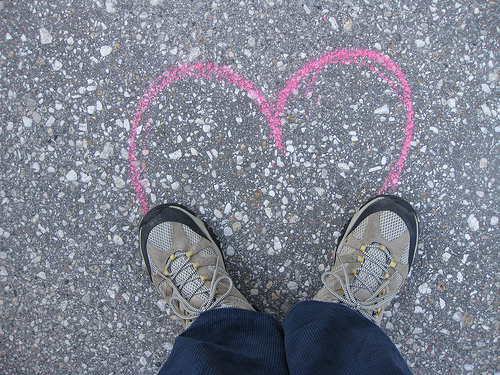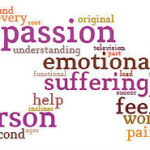By implementing the practice of love and compassion, we will naturally live a non-violent way of life. – Dalai Lama

Love and compassion – they aren’t complete without you, nor are you complete without them. How can you make both of them part of your every-day life?
What does that mean?
This quote has in interesting premise. It speaks about living a life where we regularly practice love and compassion, and make it part of our daily lives.
What will that do for us? The second half of the quote answers that it will naturally lead us to live a life which has very little violence. We certainly won’t start fights, and will do what we can to sooth those who desire a fight, but there is no promise that we can reach everyone, right?
But even if we cannot eliminate violence completely from our lives, we can work at minimizing it. We can use our source of love and compassion to help others. We can lend them our strength when theirs is low, we can advise them when they are out of ideas. We can help our little corner of the world be a little calmer, more relaxed, and less violent.
Why are love and compassion important?
Since the quote is about leading a lifestyle with a minimum amount of violence in it, let’s focus on how love and compassion help us attain that end. Consider what the emotional states are that lead towards violence. To me, words like anger and hatred top the list, how about you?
But how does that tie into today’s topic? Can you simultaneously hold both anger and love in your heart? Can you simultaneously hold both hatred and compassion in your heart? In my mind, I can’t see how anyone could possibly do so, can you?
To me, love and compassion are the strongest antidotes we have to the feelings and emotions that lead towards violence. By practicing our love and compassion, and working on making them part of our daily lives, they will help us push the thoughts of and desires for violence.
Where can I apply this in my life?
That depends on your present tendency towards violence, in the physical sense, as well as in the emotional and spiritual sense. Yelling can be but one short step shy of a blow. An angry glare can also be just one short step from a blow as well.
For those of us with Passive-Aggressive tendencies, we have to be especially careful, as it is easy to dismiss these non-physical forms of violence as nothing important. But used with precision, words can leave scars that cannot be seen, and do damage that is much harder to heal.
By using our capacity for love and compassion, we can reduce our tendencies to wards violence. We can also help our community by being the person of love and compassion, the person to whom they turn when they are at the end of their rope, when they feel they are out of options.
As usual, I consider self-mastery the ultimate mastery of a technique, and that using even an imperfect technique to help others can be an important use of it. I also believe that helping others is an excellent way of helping us become better at the technique.
In this case, what we’re looking at is how to use our love of ourselves, as well as our love for others (both as individuals, as well as our overall love of humankind) to bring us closer together and crowd out the feelings of anger and violence.
We are also looking at how we can use our compassion for ourselves and our compassion for others to help bring us closer together and crowd out the feelings of hatred and violence. How can we do so, how can we make love and compassion part of our life, and live it on a daily basis?
While there are whole books devoted to this subject, as a quick overview, I have found that it’s hard to love others without at least some love for yourself. It is also difficult to show compassion for others without having some compassion for oneself.
Having love and compassion doesn’t mean you have to let go of your standards. You can still be upset that someone didn’t live up to your expectations. But love says you will endure the hurt and become stronger. And compassion says that you understand that we all have our weaknesses, and that we are all merely human, and will screw up from time to time.
How much do you love yourself? How often do you let yourself know? What about compassion, how often do you show yourself compassion? It’s one thing to be upset that you didn’t get something right, but do you spend your time learning from the experience, or do you spend it beating yourself up?
By making love and compassion a part of our everyday life, and making the practice of them as part of our daily routine, we become naturally non-violent. When one has a great reserves of love and compassion, and is well practiced at their use, what can anger and hatred gain us? Nothing.
From: Twitter, @DalaiLama
confirmed at : it’s his own feed…
Photo by katerha






